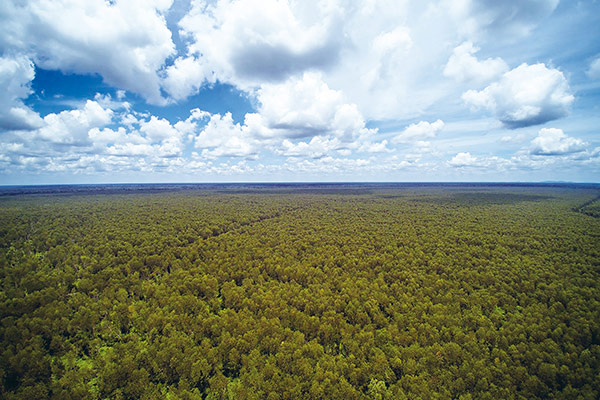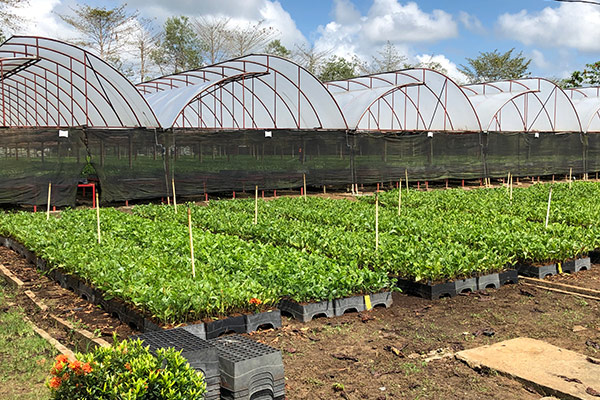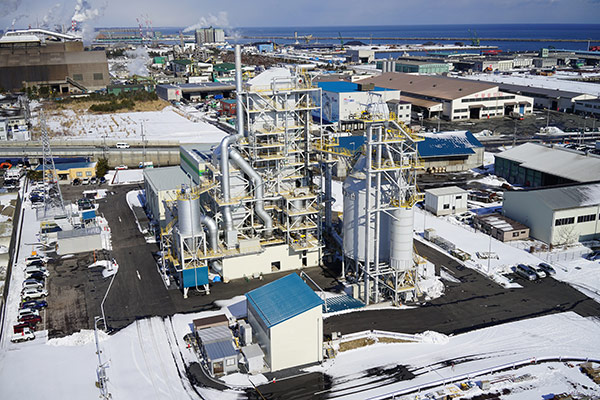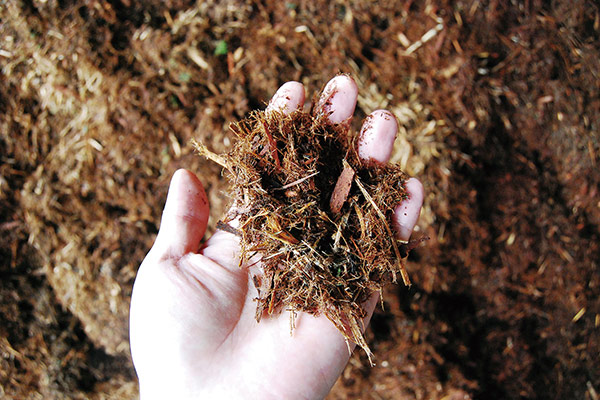- Home
- Sustainability
- Initiatives for Sumitomo Forestry Group's Business and ESG
- Environment and Resources Business
Environment and Resources Business
Business Overview
The Sumitomo Forestry Group is acquiring SGEC and other forest certifications across roughly 48,000 ha (about 1/800 of the national land area) of company-owned forests in Japan while strategically expanding forest management based on a policy of "sustainable forestry(in which new trees are planted to replace harvested timber)".
In Indonesia, Papua New Guinea and New Zealand, we own and manage approximately 237,000 ha of planted forest, including forests which have acquired the Forest Stewardship CouncilⓇ (FSC) and other third-party forest certifications, which help conserve biodiversity and contribute to the development of local communities.
In June 2023, we established and started operating our first forest fund "Eastwood Climate Smart Forestry Fund I" in the U.S. As of the end of December 2024, the fund manages about 80,000 ha of forests.
Other initiatives primarily include the development of a wood biomass power generation business in Japan as a renewable energy business that effectively uses wood and other resources.




-
Managed and owned forest area
Japan: Approx.
48,000 haOverseas: Approx.
237,000 haArea managed by forestry fund: Approx.
80,000 ha -
Wood biomass power generation scale (based on confirmed projects)
Approx.
252 MW
Main Activities within the Forestry Business
 Seedling Farming and Cultivation
Seedling Farming and Cultivation
- Contributing to the sustainability of forest resources and active resource production through efforts such as the construction of greenhouse-type cultivation facilities with proper environmental management using proprietary production technology for seedling containers
- Planting the "right trees in the right locations" based on soil conditions, orientation, topography, etc.
 Cultivation
Cultivation
- Managing a total of approximately 48,000 ha of company-owned forests in Japan and a total area of around 237,000 ha of company-owned planted forest overseas
- Maintaining and enhancing the public benefits of forests by carrying out underbrush clearing, pruning, thinning and other appropriate management required for them to grow
 Logging/Transport
Logging/Transport
- Logging forests we own or manage based on long-term logging plans
- Transporting harvested wood to business partners and factories
 Site Preparation
Site Preparation
- Preparing the ground where planted forests have been harvested to create an environment for subsequent planting
Main Activities within the Renewable Energy Business
 Procurement
Procurement
- Promoting the use of waste materials generated from the construction, renovation, and demolition of houses, as well as the use of unused forest resources as fuel for wood biomass power generation plants
 Production
Production
- Supplying fuel for wood biomass power generation plants, including chips made from unused forest resources, waste wood such as offcuts produced in the logging process for timber, wood waste produced at construction sites, and waste wood from the demolition of houses
 Power Generation/Wholesales
Power Generation/Wholesales
- Operating wood biomass power generation at six sites, leveraging regional characteristics and conditions
Integrated Approach to ESG Initiatives in the Environment and Resources Business
Forests have multifaceted functions such as water source recharge, global warming prevention, biodiversity conservation, and forest product supply. A sustainability perspective is essential for forest management, maintaining the cycle of planting trees, growing them, harvesting and utilizing them, and planting them again.
Currently in Japan, planted forests are approaching the harvesting period, and the nation is underway trying to turn forestry into a growth industry by encouraging the use of wood. The stable supply of seedlings for replanting has become a challenge as a consequence of potential increase in the use of domestic timber and clear cutting. Our domestic forestry business adopted leading-edge forestry equipment to improve productivity while developing and strengthening seedlings production systems.
In our overseas forestry business, worldwide deforestation and stronger regulations on harvesting natural forest are expected to reduce the supply of natural wood even more. Under such circumstance, the Sumitomo Forestry Group engages in sustainable forest management and industrial material production harmonized with local communities and the environment. This includes the development of large-scale afforestation projects and the use of logs as raw materials of our manufacturing business. In December 2022, we acquired 100% of the shares of PT. BINA OVIVIPARI SEMESTA (BIOS), a company that owns and manages mangrove forests. By protecting and managing mangrove forests as a conservation forest, we aim to create high quality blue carbon credits.
The renewable energy business mainly promotes wood biomass power generation that uses chipped scrap wood and unused forest resources as fuel to address the insufficient supply of sustainable energy services. Not only does this business supply renewable energy, but it also contributes to the advancement of forestry from the effective use of forest resources to local forest environment maintenance.
ESG Initiatives in the Environment and Resources Business
- Click here for related information
-
- Promotion of the Renewable Energy Business
- Sustainable Forest Management
- Biodiversity Conservation in Company-Owned Forests in Japan and Planted Forests Overseas
- Resource Recycling Initiatives
- Respect for Human Rights in Overseas Forestry Business
- Occupational Health and Safety
- Examples of Regional Contribution Activities Overseas
- Home
- Sustainability
- Initiatives for Sumitomo Forestry Group's Business and ESG
- Environment and Resources Business

